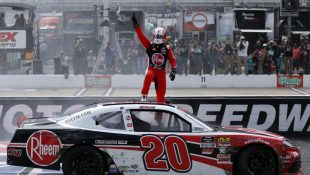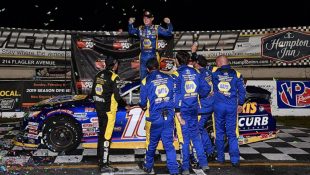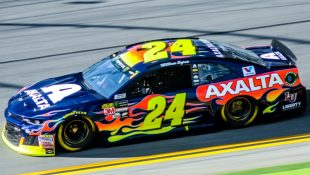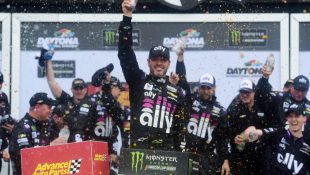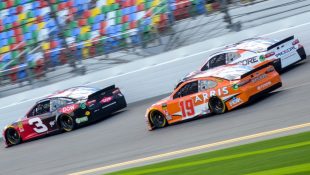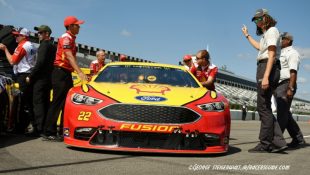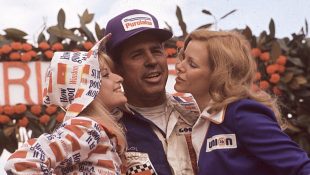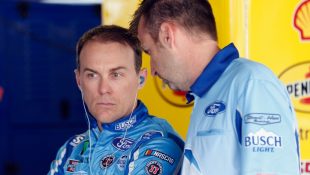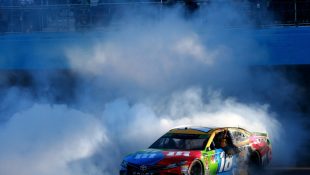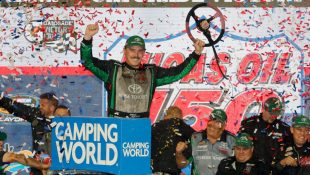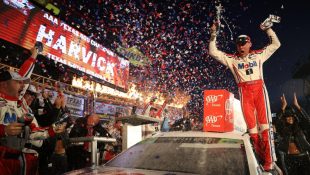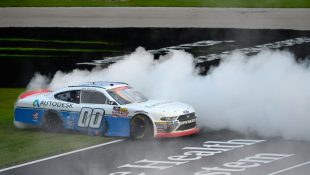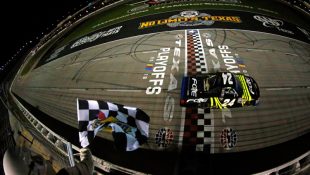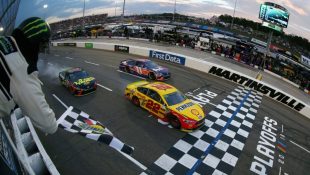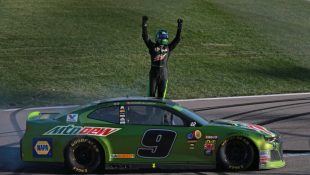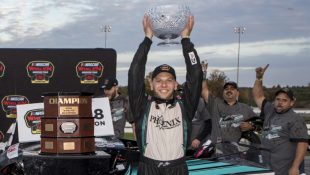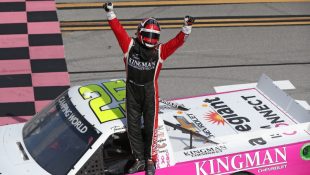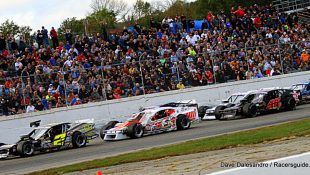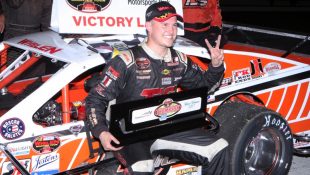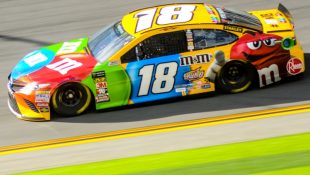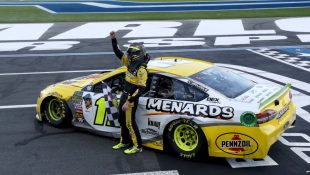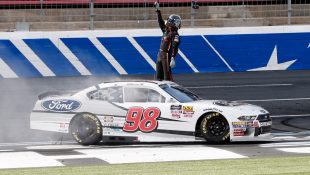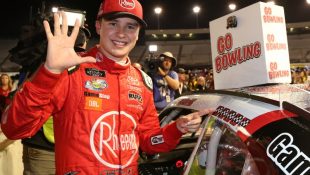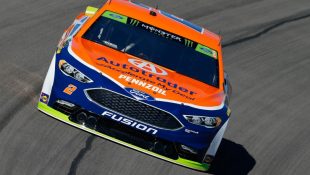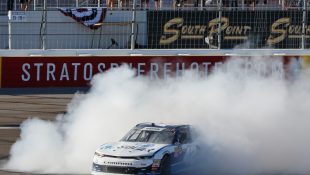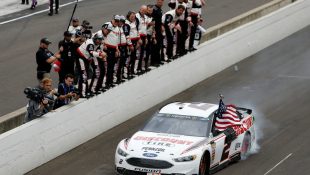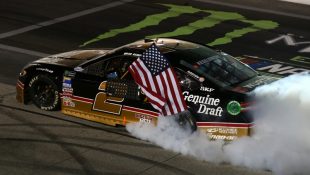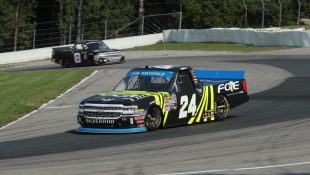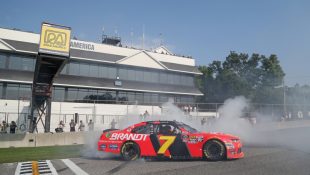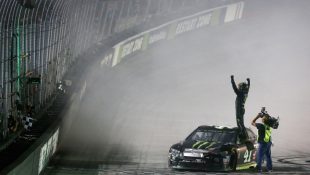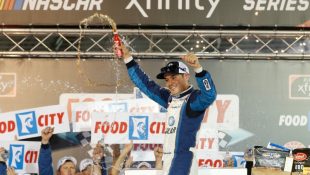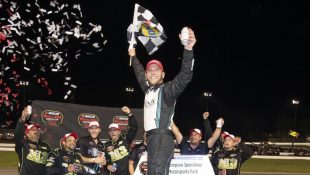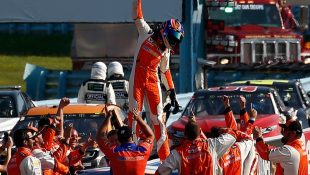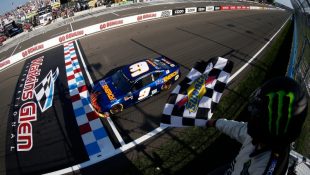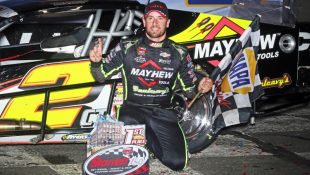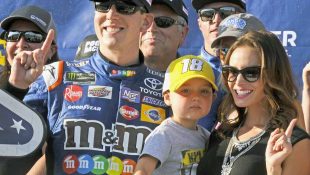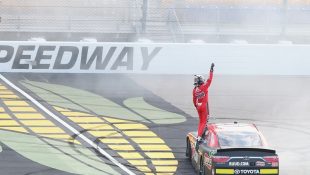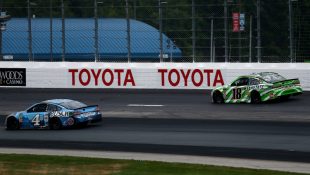NASCAR Chairman Confirms No Changes to the Chase for 2015
CHARLOTTE, N.C.–The way NASCAR chairman and CEO Brian France sees it, no news is good news, as far as potential changes to the Chase for the NASCAR Sprint Cup format are concerned.
In confirming that the sanctioning body will stand pat with its 10-race playoff format this year, France indicated that one of the primary governing factors in the decision to keep the Chase status quo was the overwhelming response from fans.
“I want to talk a little bit about the Chase, because it’s overwhelmingly popular with the most important stakeholder–our fans,” said NASCAR chairman and CEO Brian France in kicking off the Charlotte Motor Speedway NASCAR Media Tour presented by Technocom at the Charlotte Convention Center. “The research and data that we’ve got over the winter not only suggests that, it determines that loud and clear.
“They like the fact that it tightened up competition. They liked the drama down the stretch. They liked the emphasis on winning. And one of the things they told us that they really liked is the idea that we weren’t going to change anything, and they strongly suggested that we didn’t, and we’re not going to.”
Accordingly, the 16-driver Chase will use the same criteria for determining driver eligibility and the same elimination format for determining the champion.
“It’s not because there aren’t a tweak or two here that we didn’t get good suggestions on,” France said. “but one of the magical parts of this Chase, and we want to make sure we keep it this way, is the simplicity of it: Win and you get in; be in the top eight, top four, whatever it may be, and move on; coming down the stretch, beat the other three drivers and you win the championship.
“So whatever we would do into the future, we want to make sure that simplicity is right there.”
The Chase aside, it’s not as if there won’t plenty of changes for fans to embrace in 2015. Perhaps most highly visible is the new pit road officiating system that combines video and computer technology with a smaller number of officials on pit road.
A sophisticated computer system will make cut-and-dried calls and will flag possible violations (such as pit crew members over the wall too soon) for review and verification by a team of eight officials at computer terminals in a trailer.
The input for the system consists of approximately 46 high-definition cameras mounted above the grandstands. Overall, the new officiating system promises to provide more relevant data to television partners, media and fans.
“We already know that 2015 and the edition of the Great American Race (Daytona 500) will forever have a chapter in the sport’s history,” said Steve O’Donnell, NASCAR executive vice president and chief racing development officer. “It will be the first NASCAR Sprint Cup Series event to utilize our new pit road technology, and if you haven’t heard of the innovation, you soon will.
“At the heart of this, its purpose is the ability to provide an extraordinary experience to our broadcast partners, the race teams, and ultimately our fans. We’re going to do this by way of statistics, video, and data during a NASCAR event. And with this technology, we know that we’re going to be safer, we’ll be more exact, and we’ll realize a fairer and more balanced playing field.”
O’Donnell also addressed the issue of side skirts on the cars, which teams have used to improve the aerodynamic performance of their cars. In 2015, manipulation of the fenders and flares no longer will be permitted, and teams will be required to return to pit road when a violation is detected.
NASCAR teams will have to adapt to a new rules package on open-motor tracks this season, one that features lower downforce numbers (via a smaller spoiler) and reduced horsepower, factors NASCAR hopes will make the racing even more competitive than it was during last year’s first 16-driver Chase season.
France stressed that the new rules package is a work in progress, as NASCAR continually strives to improve the quality of its on-track product.
“It’ll always evolve, and the reason for that is the teams are always trying to gain an advantage, and that’s what they do,” France said. “They go out, whatever we package we present, and they try to lead every lap and they try to have an advantage, and so our job is to make sure that the playing field is level and that more teams have a good shot at competing at a high level.
“And given that it always changes, we have to change, too, and circumstances change. Tires change, tracks wear down differently. We change tracks from time to time. So there are other variables outside of what even the teams do that will always keep us looking ahead.”
NASCAR also unveiled its new Drive for Diversity class for the 2015 season. Competing under the auspices of Rev Racing will be returnees Devon Amos, 23, of Rio Rancho, New Mexico; Jay Beasley, 23, of Las Vegas, Nevada; and newcomers Collin Cabre, 21, of Thonotosassa, Florida; Dylan Smith, 22, of Randolph, Vermont; Natalie Decker, 17, of Eagle River, Wisconsin, and Kenzie Ruston, 22, of El Reno, Oklahoma.
Ruston already has two years of competition in the NASCAR K&N Pro Series East, where she finished ninth in the final standings last year.
By Reid Spencer
NASCAR Wire Service
[xyz-ihs snippet=”Bottom-2Large-Block-AdSense-Centered”]

